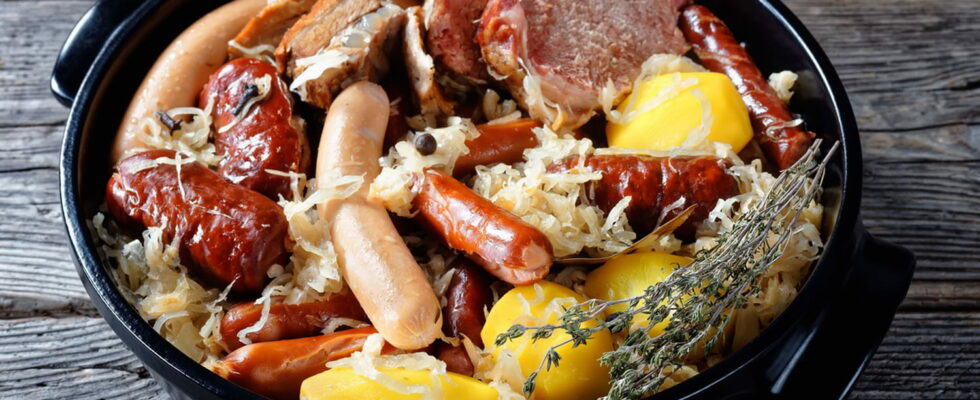Facebook is home to many groups where users share appetizing cooking recipes. But be careful, some are generated by AI and above all serve as a gateway for scammers to lure you into a trap!
“Cuisine avec Sandrine”, “Gourmet recipes”, “Cuisine avec Maman”… There are many pages and groups dedicated to cooking recipes on Facebook. And suffice to say that the photos are mouth-watering! Mascarpone, tender apple pie, roast chicken with delicious potatoes… In the comments, Internet users congratulate the chef and are eager to try the recipe!
But upon closer inspection, we quickly noticed some problematic details. This is for example the case of the image used as the cover photo for the “Recettes Gourmandes” account. The seeds of the tomatoes are strange, the inscription on the bottle of oil is illegible… In reality, it is nothing more and nothing less than content generated by an AI, as revealed by an investigation by FranceInfo. A job that only takes a few minutes thanks to tools like Midjourney, Gemini or DALL-E. And we bet the recipes come directly from ChatGPT!
Small problem: these strange publications can reach thousands of views, and garner hundreds of comments and likes. By reading the many comments, we realize that Internet users take the recipe very seriously! However, they are not as harmless as that…
Cooking recipe scam: images generated by AI
This phenomenon is not specific to cooking groups, nor to France. Facebook news feeds are filled with AI-generated photos, showing a child prodigy creating a work of art, a reproduction of the face of Jesus in nature, a person courageously facing life’s challenges, sculptures incredible sand… These publications target in particular the oldest segment of users of the social network – the boomers to put it another way… –, less aware of new technologies and the dangers of the Internet, to the point that they were given the name boomer traps (see our article).
At first glance, this doesn’t seem like a big deal. At most, aspiring cooks will not achieve a result as successful as the one in the photo. But this ignores the fact that the purpose of these pages, put forward by Facebook’s algorithms, is above all economic. It’s about monetizing user attention through advertising. The more likes and shares a page accumulates, the more attractive it becomes to advertisers. Some of these pages or groups are even run by malicious people who seek to attract an uninformed public to external sites, for example by posting the beginning of the recipe in the description then including a link in the comments allowing them to access the next steps. These links usually lead to fake media filled with advertisements or corrupted pages intended to steal visitors’ personal data.
Not to mention that the comments sections are also favored hunting grounds for “grazers” – people who make a living from digital scams -, who spot easy prey there, tending to be influenced, and then discuss with them via messaging services and extract money from them or send them to fraudulent sites. Vigilance is required! If it does not tackle it head-on, Facebook has still deployed a warning system to report images generated by AI. But it is very discreet, and it seems, based on the comments, that users do not notice it…

